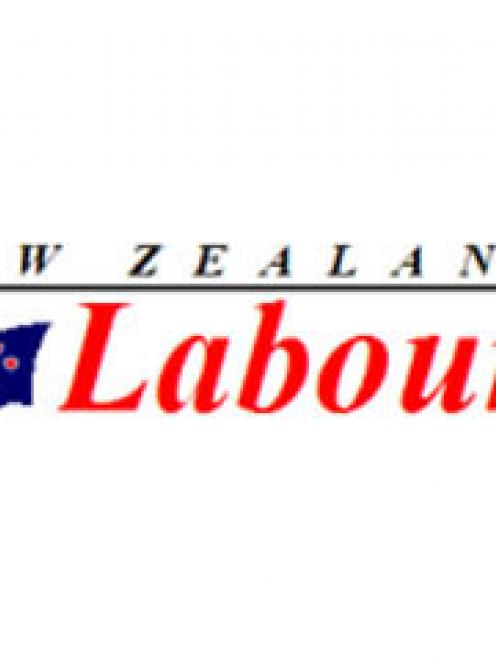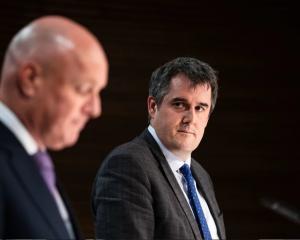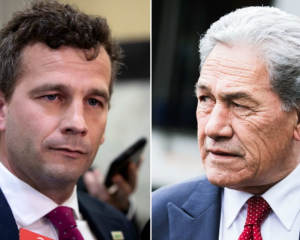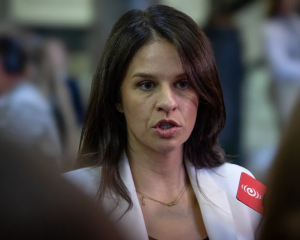
And if enthusiastic optimism would do the job, they would romp in.
Coming after the Chris Carter debacle, Labour's weekend annual conference in Auckland's Aotea Centre was the opportunity the party needed to move on and get down to business with the sort of politics that really matters.
In that, it succeeded.
Labour has recognised the need to re-brand itself through innovation and new ideas, and when it goes into next year's election campaign its manifesto will be very different to the tired set of policies it took into the last one.
It has stopped saying sorry for losing, it has stopped looking backwards to its defeat.
New policies are being developed, although details will be under wraps until well into next year.
Party leader Phil Goff, hailed by delegates at the next prime minister and in no doubt of holding his position through to the election, joined his deputy Annette King in revealing two of Labour's new-look approaches.
They should sell well.
Labour would put much stricter controls on overseas purchases of farmland and is promising to reverse the current trend.
Goff told the conference no one from overseas had the right to buy land, it was a privilege and Labour would jealously guard it.
King announced a new focus on the care, well-being and education for children under six.
Funding will have to be significantly increased and what it will cost hasn't been announced. However, she will argue that money spent on children during their early years will more than justify the costs of subsequent poor educational achievement and bad behaviour that puts too many young people into the justice system, not to mention the social cost.
Framework papers discussed at the conference, attended by about 500 eager delegates, give a sketchy idea of what other Labour policies will look like.
The economic paper calls for "a bold change in direction" away from what the Government has been doing -- or not doing, as Labour sees it -- for the last two years.
It says "an aggressive approach" is needed to deal with "inappropriate regulatory burdens" which constrain businesses.
Labour looks like it is getting ready to cut in on ACT leader Rodney Hide's campaign to get rid of red tape. If it is bold enough, it could promise to do better.
KiwiSaver will be expanded and upgraded, with compulsory retirement savings under consideration.
Tax avoidance will be stopped, including through trusts, and the Inland Revenue Department will be given more resources. That is part of Labour's agenda to make sure wealthy people, those it says were the main beneficiaries of the Government's tax cuts, don't get the chance to hide their income.
Tax thresholds will be "rebalanced" to relieve hard-working families. Tax cuts for low income earners are being considered, and Labour clearly intends giving them a better deal than the Government did. There could be a higher tax rate on top-end earners, which some delegates argued for.
The cost of power and water will be reviewed and state-owned generators will no longer be the Treasury's cash cows. That is something Labour didn't touch during its nine years in office because it didn't want to compromise its revenue base, but now it sees a new policy which would be popular with voters.
Social policy is more familiar Labour territory, although the focus on children is a big shift. It believes this will also have broad appeal when it goes into the next election with promises to not only repair what it calls the "erosion" of early childhood education under the present government but to substantially enhance it.
And something big is going to happen to benefits, although exactly what isn't clear from the policy framework papers.
"Currently, benefit arrangements don't do what is needed," the paper says.
"They don't provide adequately for the children affected, their needs and development, especially in long-term benefit families."
That is serious stuff. If Labour believes benefits don't work it is going to have to campaign on a system it believes will work.
The Government will attack these new policies, asking why Labour didn't change economic policy while it was in power.
It will also accuse it of reckless borrow-and-spend policies which the country can't afford.
But Goff and King aren't making any excuses for what are going to be called u-turns.
Their position is quite simply that Labour lost the last election and intends to win the next one.
It won't achieve that by dishing up the same policies voters were obviously unimpressed with in 2008.
The party is coming close to what could be called New Labour, although it doesn't like the name.
Goff, who put in an impressive performance at the conference, needs to be noticed a lot more than he has been so far and a set of distinctive policies which mark out Labour as being significantly different to National is one way of achieving that.
Another way, which was applauded by delegates, is to become the champion of those Labour says were the losers in "the great tax swindle" that gave nearly all the tax cut gains to the wealthy.
Unless the economy starts to pick up, with more jobs created, he could find fertile ground for this approach.
The Government, he told the conference, came to power promising more employment and they delivered more unemployment.
Prime Minister John Key won't stand up for Kiwi workers who want their wages to rise faster than prices, and won't break the stranglehold that privileged interests have on his government.
Next year's election campaign is starting to take shape.












